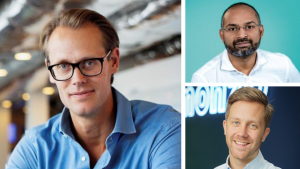The Financial Technology Report is pleased to announce the Top 25 Financial Technology CEOs of Europe for 2019. Colleagues, peers, and other participants nominated these exemplary individuals who lead some of the most promising technology companies. They were reviewed for company performance, workplace culture, product strength, and strategic decision-making, among other areas. Assessments were largely based on the commentary provided in the nomination submissions.
This year’s awardees include CEOs who are highly regarded by both their peers and employees for their ability to foster highly productive and positive work environments. They are also CEOs who have led substantial growth development efforts for their companies leading to the industry's overall evolution. These uniquely skilled individuals demonstrate exceptional leadership and have set a high bar for corporate performance in this sector. Please join us in recognizing The Top 25 Financial Technology CEOs of Europe for 2019.
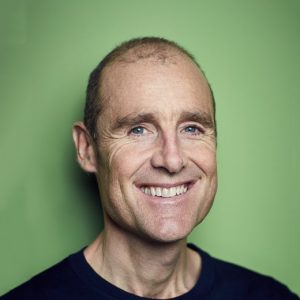 1. Pieter van der Does
1. Pieter van der Does
Company: Adyen
Location: Netherlands
Dutch, Amsterdam-based internet entrepreneur Pieter van der Does co-founded Adyen in 2006. The payments processing firm saw its shares double in the first two hours of trading during its 2018 IPO, securing van der Does a spot on the coveted Forbes world billionaires list. Some of Europe’s largest companies have chosen to utilize Adyen—whose name is Surinamese for “to start over again”—as their omni-channel payments processing platform.
Van der Does received a Master of Economics degree from the University of Amsterdam. He has held leadership positions since the mid-1990s, working as head of operational management and corporate finance for ING Netherlands, chief commercial officer for Bibit Global Payment Services (which he also co-founded along with Arnout Schuijff), and head of sales and account management at the Royal Bank of Scotland. Van der Does and Schuijff sold Bibit to the Royal Bank of Scotland before partnering up once again to form Adyen. Van der Does has fostered an open workplace culture and utilized proactive HR strategies to ensure that the company’s highly-skilled employees are able to continue to contribute to Adyen’s growth and success.
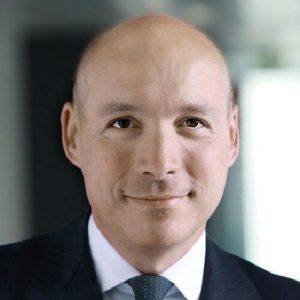 2. Paolo Bertoluzzo
2. Paolo Bertoluzzo
Company: Nexi
Location: Italy
Nexi CEO Paolo Bertoluzzo came to the company from Vodaphone, where he served most recently as group chief commercial operations and strategy officer. Bertoluzzo has developed and executed Nexi’s strategy and expanded its position in the digital payments market while noticeably enhancing the company’s customer satisfaction rate. Nexi began its journey as Istituto Centrale delle Banche Popolari Italiane S.p.A. (ICBPI), a bank specializing in payment systems. After being acquired by Bain Capital, Advent International, and Clessidra SGR in 2015, the company changed its name to Nexi in November 2017. Their signature CartaSi card business was also renamed to Nexi Payments at the same time.
Bertoluzzo also serves as a member of the Politecnico di Milano Advisory Board and served as a member of the worldwide telecom industry association, the GSMA Board, from 2013 to 2016. He completed his undergraduate degree at Politecnico di Milano and received a Master of Business Administration from INSEAD.
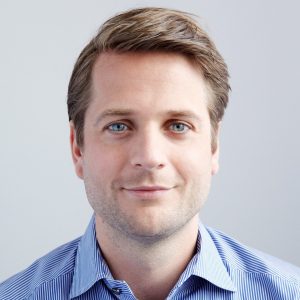 3. Sebastian Siemiatkowski
3. Sebastian Siemiatkowski
Company: Klarna
Location: Sweden
Sebastian Siemiatkowski founded Klarna while still completing his Master of Science degree in Economics and Business from Stockholm School of Economics, from which he graduated in 2007. He cofounded Klarna to fill the niche for a safe and easy payment system, and initiated the “buy now, pay later” phase of online shopping. The Sweden native worked at Burger King—where he met Klarna co-founder Niklas Adalberth—and as a sales manager at a mobile phone company before becoming Klarna’s CEO.
Siemiatkowski has remained the CEO of his company for over a decade, watching its rapid growth expand across Europe and even hit North American shores. His fully licensed bank serves over 80 million customers and 200,000 merchant users, including big names like Nike, Asos, and fellow Swedish business H&M. Within Klarna, Siemiatkowski has gained a praise-worthy reputation for cultivating a family-like company culture with high employee retention.
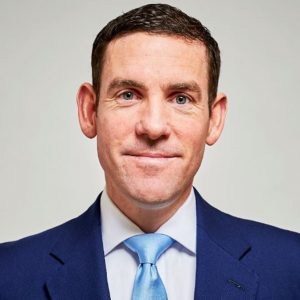 4. Lex Greensill
4. Lex Greensill
Company: Greensill
Location: UK
Not many CEOs can claim knighthood, but in 2018, Lex Greensill was awarded Commander of the Most Excellent Order of the British Empire for his services to the U.K. economy. Greensill Capital has become a leading provider of supply chain finance solutions since its inception in 2011. The company now has over 1,000 employees across the globe. Greensill credits growing up on his parents’ sugar cane farm in Australia for introducing him to the strains of a weak supply chain, thus inspiring the creation of Greensill Capital.
Greensill completed his undergraduate degree in Queensland while taking courses at night school so he could continue to work on his parents’ struggling farm throughout the day. Later, he received his Master of Business Administration from Manchester Business School. Prior to founding Greensill Capital, he created Morgan Stanley’s global supply chain finance business and led Citi’s EMEA supply chain finance business.
 5. Kristo Käärmann
5. Kristo Käärmann
Company: Transferwise
Location: UK
Kristo Käärmann and fellow Transferwise co-founder Taavet Hinrikus met at a party and bonded over the unfair banking practices surrounding exchange rates. Each were paid in Euros but had bills to pay in other European currencies. As a result, their paychecks always seemed to suffer. The unseen fees and unpredictable exchange rates used by banks prompted Käärmann to branch out and create his own service for people in a similar position.
Transferwise works tirelessly to cut fees, ensuring the money you earn stays in your bank account, even as it moves across borders. While it’s not unusual for a bank to add on a 7% transfer fee, Käärmann’s company has an average fee of just 1% or lower. Prior to founding Transferwise, Käärmann worked as a management consultant at PricewaterhouseCoopers and Deloitte and founded Investor.ee.
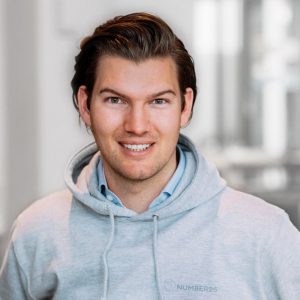 6. Valentin Stalf
6. Valentin Stalf
Company: N26
Location: Germany
Valentin Stalf founded N26 in 2013 with his friend Maximillian Thayenthal. They had dreams of creating a state-of-the-art digital bank that the younger generation would find engaging to use. They soon realized it wasn’t going to be easy – to the tune of 298 investor rejections. However, Stalf and his partner continued working hard, and now their digital banking system is disrupting brick-and-mortar banks around the world.
Stalf launched his product in 2015, and the platform now has over 4 million customers across 25 markets. N26 even found its way into the U.S. earlier in 2019. Based in Berlin, Stalf’s company has over 1000 employees accross their German, Spanish, and U.S. offices. Prior to founding N26, Stalf served as entrepreneur in residence at Rocket International. He holds a Master of Science degree in accounting and finance from University of St. Gallen.
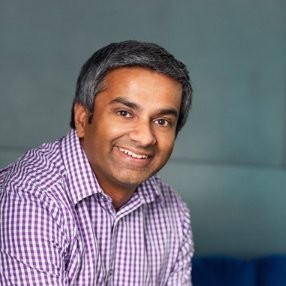 7. Sunil Chandra
7. Sunil Chandra
Company: OakNorth
Location: UK
OakNorth’s next-generation credit platform has seen tremendous growth over the past decade. The U.K.-based bank, which received regulatory approval in 2015, gives small- and medium-sized businesses the opportunities for business and property loans that big-name banks may not provide. The company has continued its upwards trajectory with the appointment of Sunil Chandra as its new CEO this year. Chandra was previously a vice president at Google, where he had been since 2007. In his time leading Google’s talent acquisition and operations, he increased the company’s global footprint from 7,000 to over 100,000 employees.
Prior to Google, Chandra was the chief operating officer of Barclays Capital and director of administration at McKinsey & Co. Chandra is a true global executive and welcomes the transition from San Francisco to London with open arms. Chandra received a degree in computer engineering from University of Wollongong, and a degree in technology management from APESMA.
 8. Tom Blomfield
8. Tom Blomfield
Company: Monzo
Location: UK
Tom Blomfield’s entrepreneurial spirit manifested itself at a young age, where he busied himself creating a website for an estate agent, 250 pounds for the page and 3 pounds for each subsequent house entry. Blomfield went on to earn a law degree from the University of Oxford, but not long after graduating, he decided law was not for him and founded GoCardless in 2011. After a few years at Starling Bank, where traditional banking methods didn’t quite sit well with him, he left to found competitor Monzo.
An early leader in the app-based challenger banks to come out of the U.K., Monzo’s use was originally restricted to the app and its prepaid debit card. In 2017, its license restrictions were lifted, allowing users to open up Monzo deposit accounts. During its first round of funding, the company raised one million pounds in 96 seconds. Blomfield was appointed as an Officer of the Most Excellent Order of the British Empire due to his services “Improving Competition and Financial Inclusion in the Banking Sector.”
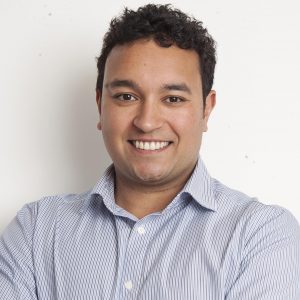 9. Samir Desai
9. Samir Desai
Company: Funding Circle
Location: UK
Britain’s biggest peer-to-peer lender is headed by Samir Desai, who came up with the idea for his company over a few pints with friends in a London pub in 2008. At this time, a global economic crisis had all but halted big bank lending to small-to-midsize businesses. Desai proposed taking banks out of the equation altogether and letting companies borrow money from investment pools. Thus, Funding Circle was born.
The other two brains at the table, Desai’s friends from his Oxford days, decided there was something to it and all three quit their jobs and got to work launching Funding Circle in 2010. Now the company has a presence in several European countries and the U.S. and has been used by over 50,000 small businesses and 80,000 investors. Prior to starting his own company, Desai worked as an executive at Olivant and as a management consultant at BCG.
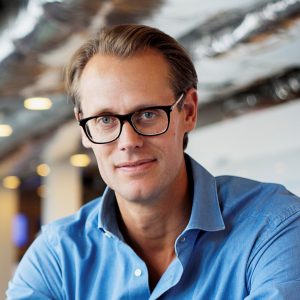 10. Jacob de Geer
10. Jacob de Geer
Company: iZettle
Location: Sweden
Serial entrepreneur Jacob de Geer has made a name for himself as one of the most recognizable and influential names in fintech. His most recent startup, iZettle, has proven to be one of Europe’s fastest growing companies in the fintech sector and has been experiencing steady success since its inception. With a name derived from “I settle,” iZettle allows users to settle debts and transactions from their phones, and is the first company with chip-card reader capabilities and a corresponding smartphone-based app.
De Geer previously cofounded a movie-sharing platform called Ameibo and communications agency Tre Kronor Media, an advertising network that he cultivated into one of the largest in Europe before it entered the Swedish Stock Exchange in 2005. iZettle’s first mobile app was launched with much fanfare, adding yet another success to a long list of de Geer’s projects. De Greer earned his Master of Business Administration degree from the Stockholm School of Economics.
 11. Guillaume Pousaz
11. Guillaume Pousaz
Company: Checkout
Location: UK
Checkout, a leading global payments provider, operates under a mission to alter and improve how businesses interact with financial institutions. Pousaz founded Checkout in 2012 and it recently received its spot in the limelight when a Series A funding round set its valuation just shy of $2 billion. Pousaz has the reputation of a jet-setter, allegedly traveling around 300 days a year. However, Checkout’s recent success has him considering a move from his permanent home in Dubai to London, to be closer to business operations.
Born in Switzerland, Pousaz studied mathematical engineering at Ecole Polytechnique Fédérale De Lausanne before enrolling in an economics bachelor’s program at HEC Lausanne. He bounced around the globe for several years afterwards, learning lessons at various startups along the way. With Checkout, Pousaz earnestly hopes to permanently change the way people interact with their money.
 12. Daniel Klein
12. Daniel Klein
Company: SumUp
Location: UK
Serial tech entrepreneur Daniel Klein has high hopes for SumUp to become “the world's first ever global card acceptance brand.” Similar to Square in the U.S., SumUp enables small businesses to accept payments via credit and debit card for a nominal fee. What sets the company apart is that SumUp tries to steer clear of reliance on third-party organizations as much as possible. Klein feels that a big opportunity for success lies in keeping as much work as possible in-house.
Klein focused on building their own company hardware and payment gateway, which reduced the cost of owning a card acceptance terminal to a tenth of what it was before. These types of strategies have allowed Klein to turn SumUp into the first small-business card acceptance program that has been able to turn a profit. Klein received a degree in international management from Otto Beisheim Graduate School of Management.
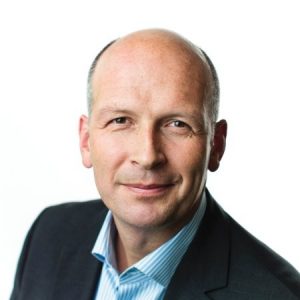 13. Jürg Hunziker
13. Jürg Hunziker
Company: Avaloq
Location: Switzerland
Jürg Hunziker’s 30 years’ experience in financial technology and banking have made him an international leader. Avaloq employees seem to agree, as he has garnered a reputation for promoting a positive company culture while driving the company forward to success. Avaloq has worked to digitize and automate the financial industry for decades, and is still expanding into a wider, more ubiquitous global market.
Hunziker joined Avaloq as chief markets officer and deputy CEO in 2016. Prior to Avaloq, he oversaw Sungard’s European division. In his spare time, Hunziker is known to be an avid cyclist, runner, and hiker, preferring to spend time out of the office and in nature. He also supports sustainability and environmental protection charities and works actively as a conservationist.
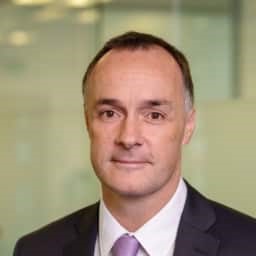 14. Bill Holmes
14. Bill Holmes
Company: Radius Payment
Location: UK
Bill Holmes founded UK Fuels in 1990, a diesel bunkering company he was able to build based on his previous work experience at Esso Petroleum. He was able to expand the company over the course of the next 20 years, leading to an impressive merger of over 20 European fuel card companies throughout the U.K., Ireland, and mainland Europe. This 2013 merger created Radius Payment, the premier player in the European fuel card market.
Headquartered in Crewe, Cheshire, and with a presence in nearly 30 countries around the globe, Radius Payment launched Britain’s first fuel card in 2016. The Crystal Card was developed in hopes of mediating the costs of fuel for fleets, and the company has since begun operating telematics company Kinesis as well as subsidiary fuel card provider, UK Fuels. Radius has also extended its reach by opening offices in both Singapore, and Kuala Lumpur, Malaysia.
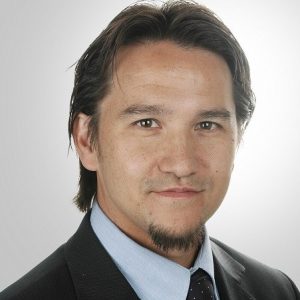 15. David Khuat-Duy
15. David Khuat-Duy
Company: Ivalua
Location: France
David Khuat-Duy founded Ivalua almost two decades ago to develop best-in class procurement software. Since then, the company has been recognized across the globe as a leader in spend management software vendors. Seeing consistent growth and success for almost 20 years, Ivalua continues to impress industry analysts under Khuat-Duy’s lead.
Khuat-Duy graduated from Ecole Polytechnique with a Ph.D. in Mathematics. Prior to founding Ivalua in 2000, he worked as an SAP consultant at PricewaterhouseCoopers where he oversaw the architecture, design, and implementation of ERP for international accounts. Khuat-Duy has stated that his goal is to help change the world in which procurement departments operate, so they are able to more quickly adapt to new technologies and unforeseen challenges.
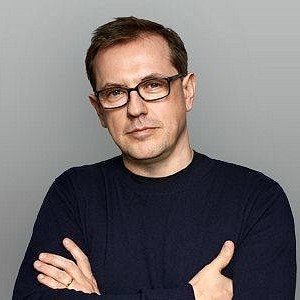 16. Martin Saidler
16. Martin Saidler
Company: Numbrs
Location: Switzerland
Moving throughout Central Europe’s IT startups, Martin Saidler launched his Numbrs app at a fintech conference in 2013, where it was met with great interest. Numbrs combines all of an individual’s personal banking into one easy-to-navigate app. As digital banking was beginning to really gain traction and replace how most of the world paid their bills, Numbrs gave customers a secure and simple platform on which to manage their money.
By 2017, Saidler’s app had garnered over 1.5 million accounts and raised over $125 million. In addition to helping customers keep track of their finances, Numbrs also lets users compare the terms and offers of big banks, and even apply for a line of credit, directly within the app. Saidler continues to look for more investment opportunities in the IT and fintech sectors. He specifically started turning his sights towards Israel in 2015, helping to develop numerous fintech investment opportunities during his many visits to the country.
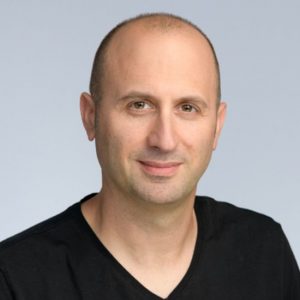 17. Arik Shtilman
17. Arik Shtilman
Company: Rapyd
Location: UK
Rapyd’s B2B service works with enterprises and mobile platforms to help them make digital payments and withdrawals. CEO Arik Shtilman entered the fintech sector in 2016, when the serial entrepreneur decided to sell his cloud computing company and cross over into the realm of payments. Prior to Rapyd, Shtilman was the CEO and founder of ITNAVIGATR, a cloud-based management and performance company. Since then, he has garnered a reputation for rapidly building high-growth ventures.
Recently, Shtilman executed an aggressive recruitment strategy to grow his company from 30 employees to 200 in just over the course of a year. He credits this success to a finely tuned HR department, which ensures each new hire represents the company culture of agility, inquisitiveness, and an attitude that anything is possible.
 18. Breon Corcoran
18. Breon Corcoran
Company: Worldremit
Location: UK
Breon Corcoran became the CEO of Worldremit in October 2018. Worldremit’s technology has helped to transform the remittance industry from a traditionally cash-based, offline sector to an increasingly transparent, cashless industry. The money transfer company provides its services in over 50 countries and has approximately 3 million users. Worldremit has experienced highly successful funding rounds nearly every year since their Series A round in 2014.
Corcoran studied mathematics at Trinity College Dublin and was formerly the CEO of Paddy Power Betfair, one of the world’s largest online gaming companies. Prior to his affiliations with Paddy Power and Betfair, he was a vice president at J.P Morgan and also spent time working at Bankers Trust. Corcoran has had leadership roles in the digital business sector throughout Europe, the U.S., and Australia, putting him in an excellent position to lead the 100% cashless mobile money company that operates on a global scale.
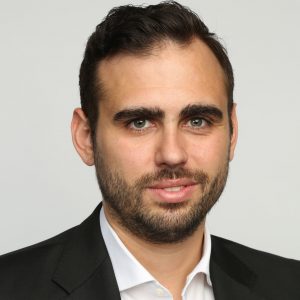 19. Julian Teicke
19. Julian Teicke
Company: Wefox
Location: Germany
Julian Teicke developed the Wefox online insurance management platform to help customers, insurance brokers, and insurance companies maintain clear communication. Now Europe’s leading insurtech, Wefox, has over half a million customers and has increased its revenues to over $100 million. Before creating his own company, Teicke helped launch Chocri in the U.K. and helped ease Groupon into U.K. markets. In 2011, he co-founded a Swiss e-commerce website called DeinDeal, where he served as COO until 2015.
Wefox was launched in 2014, while Teicke was still at DeinDeal. He shares the credit for the ideas behind this business plan with his father, who is a 30-year veteran of the insurance industry. Within a year, Teicke was able to announce a Series A investment of $28 million, in a round led by Target Global and Horizons Ventures. The company has grown to employ a staff of over 400 and is continuing to expand throughout the continent.
 20. Mark Mullen
20. Mark Mullen
Company: Atom Bank
Location: UK
Mark Mullen co-developed Britain’s first mobile lender, Atom Bank, in 2014. With three decades of finance, leasing, and retail banking experience, he cut a fearless figure as a leader of a novel way to move money. He was the CEO of First Direct, the world’s first telephone bank launched in 1989. Blazing the trails for a digital lending platform was well in line with Mullen’s prior achievements.
Knowing that the mortgage market can be a challenge for smaller banks as they fall under the shadow of giants like HSBC and suffer at the whims of big bank price wars, Mullen is working to unveil a bevy of new products that will hit the market over the course of the next year. Mullen continues to help people find the money to purchase houses and “finance life,” as he feels that is a key part of banking in the U.K.
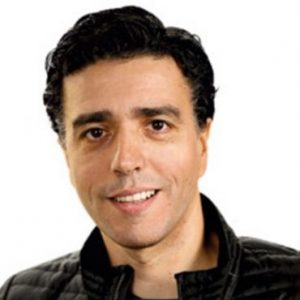 21. Nuno Sebastiao
21. Nuno Sebastiao
Company: Feedzai
Location: Portugal
Nuno Sebastiao, co-founder of Feedzai, the Portuguese company that has become a leader in developing AI and machine learning software to combat bank fraud, has raised over $82 million in funding for the company. Now with over 400 employees, Feedzai keeps banks, retailers, payments processors, and their customers safe worldwide.
Sebastiao had a strong start in the AI world, working as an engineer for the European Space Agency before branching out to his own startup. There, he also worked closely with several other successful startups, where he was able to learn the ins and outs of founding one’s own software company. He holds a Master of Science in computer science and a Master of Business Administration from the London Business School.
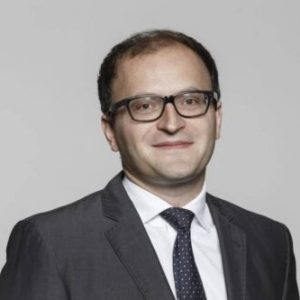 22. Tamaz Georgadze
22. Tamaz Georgadze
Company: Raisin
Location: Germany
Tamaz Georgadze founded Raisin with what he described as a very simple goal: “to help consumers earn more on their savings.” He also set to work breaking down logistical barriers so the platform could be accessible to customers all over Europe, despite geographical locations. Now, residents of 31 countries can utilize the service, which has partnered with nearly 80 banks.
Prior to developing Raisin, Georgadze spent a decade with McKinsey & Co., including a stint as principal leading McKinsey's savings and investment products. He received his Ph.D. in agricultural economics and an Honors Law Degree from the University of Giessen. Before his education in Germany, he obtained an international economics degree from Tbilisi State University in Georgia.
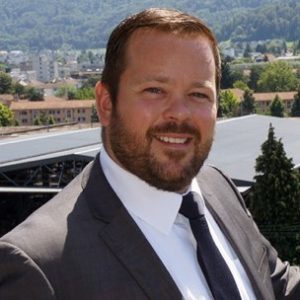 23. Ben James
23. Ben James
Company: Tradeplus24
Location: Switzerland
Tradeplus24 was founded by CEO and co-founder Ben James and 3 of his friends in Zurich in 2016, and while much younger than the majority of their competition, they have quickly become one of the leading invoice financing organizations in Switzerland. Even big banks like Credit Suisse have begun integrating Tradeplus24’s products into their offerings.
James says their innovative products have helped subject matter experts leverage their accounts receivables and expand their business. The B2B-structured lender focuses on supporting mid-market companies. James’ strong commercial acumen and leadership has helped Tradeplus24 become a reliable way for companies to raise funds in a simpler, more cost-effective way. James received his architectural engineering degree from the University of Leeds.
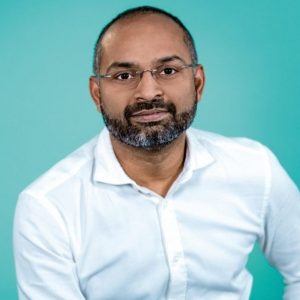 24. Jaidev Janardana
24. Jaidev Janardana
Company: Zopa
Location: UK
Jaidev Janardana joined Zopa, the world’s first peer-to-peer lending service, in 2014 as its COO. Since then, the company has quadrupled revenue and loan volumes, which speaks worlds about Janardana’s leadership. Zopa has achieved profitability and obtained its banking license in the few short years that Janardana has been at the helm.
Before that, Janardana was the CMO of Capital One (Europe), where he helped the U.K. branch of the company return to profitability and growth after the 2008 financial crisis. Prior to working in the U.K., he spent time in leadership roles at Capital One in Mclean, Virginia. He holds a Master of Business Administration from The Indian Institute of Management, Bangalore and a Bachelor of Technology from Gujarat University.
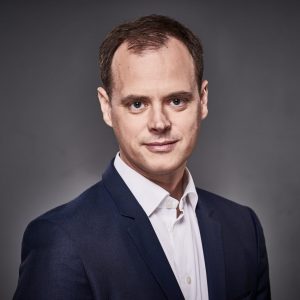 25. Tim Sievers
25. Tim Sievers
Company: Deposit Solutions
Location: Germany
Tim Sievers founded Deposit Solutions in 2011, where he still serves as CEO. The company was considered a revolutionary presence in open banking when it debuted, and has since successfully expanded from its Hamburg headquarters across Europe and into the U.S. The company has seen meteoric growth since its inception, with several wildly successful funding rounds.
Sievers strongly believes that their open banking technology will become the standard for the future. Prior to founding Deposit Solutions, the pioneer built up tech companies and worked in private equity. He was educated at the University of Hamburg, from where he holds a doctorate in economics. He also received a Master of Science in economics from the London School of Economics and Political Science and a Master of Arts in politics, philosophy and economics from the University of Oxford.

